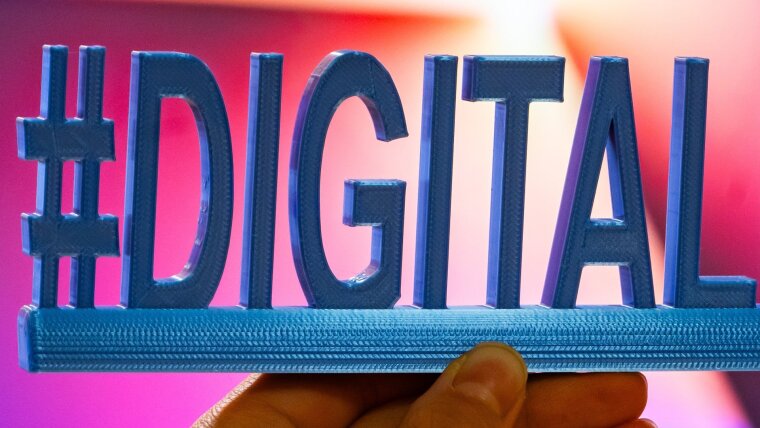
- Studies and Teaching
Published: | By: Stephan Laudien
In order to promote the development and establishment of new digital formats in university teaching, the Thuringian Ministry for Economic Affairs, Science and Digital Society, together with the Stifterverband, awards fellowships for innovations in digital university teaching. This year, one female and three male academics from the Friedrich Schiller University Jena will benefit from this funding. The award winners and their projects have now been announced.
A self-produced podcast as an examination format
"Our idea is to establish student-produced podcasts as a new examination format," says Dr Susann Schäfer from the University of Jena's chair of Economic Geography. Together with her colleague Anika Zorn, she considered the extent to which written examination formats such as seminar papers are still appropriate in light of the possible use of AI tools. In the fellowship that has now been approved, podcasts are to be developed in the sense of constructive alignment and assessment standards are to be proposed according to different learning objectives. The project "Podcasts as a digital examination format - implementation, accompanying research and transfer" will start in October 2024 and run until December 2025. A total of over 40,000 euros is available for the project.
Debating exam questions with the chatbot
Felix Fahnroth wants to develop a special chatbot to support students when they start learning the didactics of Romance languages at school. "ChatEX answers students' individual and anonymous comprehension questions and explains concepts and models in detail based on the lecture content," says Felix Fahnroth. The new tool should also make it possible to simulate a module examination in order to check the level of knowledge. The 26-year-old research assistant at the chair of Didactics of Romance Languages in Schools had the idea for this special chatbot during his doctorate. The decisive factor for him were the possibilities and limitations of large language models in school role-playing games in foreign language lessons. "In this way, we create a flexible, personalised and error-friendly learning environment that facilitates access to the learning content and strengthens students' media skills," says Felix Fahnroth. At the same time, students will be sensitised to the strengths and weaknesses of AI language models and their reflective use of these technologies will be encouraged. The project will start on 1 October 2024 and run until the end of 2025, with funding of 32,000 euros for material and personnel costs. At the end of the project, there should be a fully developed version of the chatbot "ChatEX" that can be integrated into teacher training in the long term.
Historical research with the tools of the 21st century
Based on the idea that the humanities must also face up to accelerated digitalisation in their teaching concepts, Max Grund and Clemens Beck are developing a self-learning module to build database skills for history studies. "We are designing the module in such a way that it can be used for other history degree programmes and is suitable for other humanities subjects," says Max Grund. The research assistant at the chair of Medieval History is collaborating with Clemens Beck, who works at the chair of Digital Humanities. Two courses are planned in order to lay the necessary foundations for using the self-learning module to work on historical issues with 21st century tools, says Clemens Beck. In the "DigiHistDB" project, students will learn how to collect and model data and store it in a database. The underlying principle of the module is based on collaborative methods, such as those used in Wikipedia. Other scientists as well as interested laypeople can enter their research results and share them with each other. They are then taught to critically reflect on the data structures and interpret the results. The project "DigiHistDB: Development of a self-learning module for database modelling and analysis in the historical sciences" will start in October 2024 and run until the end of 2025. 49,000 euros in funding has been approved for the project.